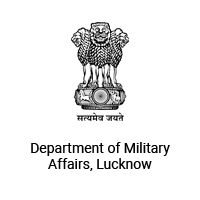Junior Server Administrative
Job Details
Experience
Education
Location
Employment Type
Salary
Job Roles
Posted
Job Description
Server administrators install, configure, and maintain various types of hardware and software, which often involves creating user accounts, carrying out backup and recovery functions, and monitoring the performance of servers at all times. They need to configure, manage, and implement operating systems.
Also Known As System Administrators, They Manage Both Servers And Networks To Ensure Their Smooth Functioning. They Also Keep Track Of Data Entering Or Exiting The Organization To Secure The Networks. Because Of The Nature Of This Job, They Need To Be Prepared To Report To Work Round-The-Clock.
A Central Computer Is A Client-Server Network, Referred To Also As A Server, Where Data And Other Resources Are Hosted. PCs, Laptops, And Mobile Devices, Etc. Are Clients That Contact The Server To Utilize Data Or Share Its Other Resources.
Administrators Should Have Excellent Communication (Written And Oral) Skills. They Should Be Able To Think Analytically And Be Adept At Problem-Solving.
Administrators Need To Be Physically Fit, As Their Job Entails Working Outdoors, Working At Heights, Lifting And Relocating Equipment, Etc. They Must Also Be Ready To Work Flexible Hours.
Responsibilities
- While Server Administrators Work Primarily With Servers, They Also Manage Various Other Types Of Computing Equipment That Makes Up Part Of The Network. This Includes PCs, Mobile Devices And Network Appliances Like Routers And Switches. Server Administrators Install, Configure, And Maintain Various Types Of Hardware And Software, Which Often Involves Creating User Accounts, Carrying Out Backup And Recovery Functions, And Monitoring The Performance Of Servers At All Times.
- They Need To Configure, Manage, And Implement Operating Systems. Administrators Are In Charge Of Backups And Retrieval Of Resources. They Administer And Maintain System Accounts Through Active Directory. Administrators Work With The IT Team To Design And Deploy Secure Server Processes.
- They Take Part In The Design, Architecture, Implementation, And Maintenance Of Technology Projects. As IT Equipment Can Sometimes Malfunction, Server Administrators Need To Have The Ability To Troubleshoot Hardware And Software Issues On Servers And Other Related Devices.
- Server Administrators Often Work With Other Staff Members In An Organization To Evaluate Their Technology Needs, Administer The Network Environment, Set Up Workstations, Create A Database Of The Organization's IT Policies And Document Them And Help Train Staff On The Use Of New Technologies.
- Server Administrators Need To Have Adequate Knowledge Of Many Types Of Server-Based Business Applications. This Includes Tools Made By Some Top Names In The Industry, Such As VMWare And Oracle. As IT Professionals, They Also Have To Be On Top Of The Latest Developments In Technology So That They Can Understand How To Work With New Hardware And Software. They Also Recommend Upgrades, Modifications, And Improvements.
- Although Windows Server Administrators, Mac Server Administrators, And Unix/Linux Server Administrators’ Provider Services For Different Operating Systems, Their Tasks Are Very Similar Like The Ones Stated Above.
More Bureau of Indian Standards (BIS) Jobs
More Junior Server Administrative Jobs
Popular in Contract Jobs
Popular job roles, titles, locations, and searches


_1677218070042.jpg)
_1675753994576.jpg)
_1674798187451.jpg)
_1674295727110.jpg)
_1673939335180.jpg)





